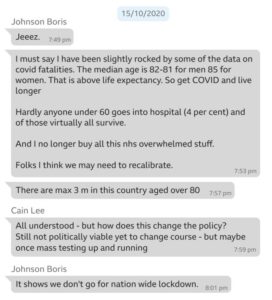Intel reaches deal to make chips for US military
The secretive program, called Secure Enclave, seeks to establish production for advanced chips with military and intelligence applications.


Intel Corp. has officially qualified for as much as $3.5 billion in federal grants to make semiconductors for the Pentagon, according to people familiar with the matter, after the chipmaker reached a binding agreement with US officials.
The secretive program, called Secure Enclave, seeks to establish production for advanced chips with military and intelligence applications. It spans multiple states, including a manufacturing facility in Arizona, Bloomberg has reported.
Though Intel has always been the frontrunner for this award, there’s been pushback from other chipmakers, concern in Washington about the wisdom of relying on one firm, and a funding fight across multiple agencies and Capitol Hill that threatened to cut into Intel’s total award.
The funding could be announced as soon as next week, said the people, who asked not to be identified because the discussions are private. It would add to a possible $8.5 billion in grants and $11 billion in loans that Intel was awarded in March under the Chips and Science Act, a law that President Joe Biden signed in 2022 to revitalize US semiconductor manufacturing and reduce reliance on Asia.
Intel is still negotiating the terms of that broader incentive package, which is intended to support facilities in Arizona, Ohio, New Mexico and Oregon. Like other Chips Act winners, Intel hasn’t received any money yet, and its award is considered preliminary. The funding for Secure Enclave also comes from the Chips Act grant program administered by the Commerce Department — following a dispute earlier this year over which agency would be responsible — but was handled outside of the standard application process.
Intel, the Commerce Department and the Pentagon declined to comment. The White House didn’t immediately respond to a request for comment.
Intel shares gained less than 1% in late trading Friday after Bloomberg reported on the deal. The stock had been down 61% this year to $19.66 through the close.
The agreement on Secure Enclave signals that the US government trusts Intel to execute on the Pentagon’s plans despite the company’s latest troubles. Last month, Intel released a devastating earnings report and revenue forecast that sent shares tumbling and shattered faith in Chief Executive Officer Pat Gelsinger’s ambitious turnaround plan, which hinges on factory investments across the globe.
The chipmaker is now actively reevaluating its manufacturing ambitions, Bloomberg has reported. No final decisions have been made, but Intel is more likely to delay or halt projects outside the US than its flagship sites in Arizona and Ohio, people familiar with the matter said earlier.
The deal also reflects a lack of other options for the Biden administration: Pentagon officials have insisted on sourcing cutting-edge semiconductors from an American company, and Intel is the only US maker of advanced processors. Other manufacturers include Taiwan Semiconductor Manufacturing Co. and South Korea’s Samsung Electronics Co., both of which are building plants on American soil with Chips Act support.
Some Washington officials have had early conversations about buying chips from the US facilities of foreign makers, Bloomberg has reported, but those talks are focused on broader procurement guidelines and are separate from the Secure Enclave program.
It’s unclear exactly what models of chips Intel would produce for the Pentagon. The Santa Clara, California-based company, which operates both a design business and a manufacturing one, still relies on TSMC to produce some of its most advanced processors.
Intel has struggled to convince potential customers like Nvidia Corp. and Advanced Micro Devices Inc. of its product capabilities. Commerce Secretary Gina Raimondo encouraged both firms to consider manufacturing at the facility Intel is building in Ohio, Bloomberg has reported, but neither currently plans to do so.
Intel has announced that other companies, including Microsoft Corp., are exploring the idea of using it to produce their chip designs. Those efforts haven’t yet resulted in large orders or significant revenue.
For chipmakers, the Pentagon can be a difficult customer. A recent report from the National Academies of Sciences, Engineering and Medicine found that companies involved in a so-called trusted foundry program — a longstanding effort that’s similar to Secure Enclave but focuses on older-generation chips — often struggle to meet Defense Department requirements or generate a return on investment from those orders.
The Pentagon was originally supposed to fund the majority of the Secure Enclave program but pulled out of its $2.5 billion commitment in February. Lawmakers then saddled Commerce, which had been responsible for the remaining $1 billion share, with the full burden. At one point, the agency planned to fold its new Secure Enclave obligations into money already set aside for Intel, Bloomberg has reported, but officials ultimately chose to treat the program as entirely separate from commercial manufacturing incentives.
The drama extended to other companies. In response to the funding dispute, Commerce scrapped a planned program for commercial research and development, forcing officials to reject a funding application from Applied Materials Inc. for a $4 billion Silicon Valley project. Efforts to boost the Chips Act by $3 billion, which would allow Commerce to restore that initiative, have stalled in Congress.
(Updates with Intel shares in seventh paragraph.)
Data Sheet: Stay on top of the business of tech with thoughtful analysis on the industry’s biggest names.
Sign up here.








